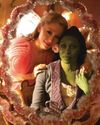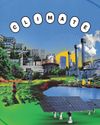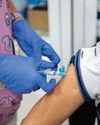
If you are newly suspicious about the safety of the products in your medicine cabinet, there’s a good chance you have Valisure, a tiny laboratory in New Haven, Conn., to thank. Or blame.
Over the past five years, Valisure’s team of about a dozen scientists has detected potentially cancer-causing chemicals in widely used medications, hand sanitizers, sunscreens, antiperspirant body sprays, dry shampoos, and—most recently— acne treatments. When Valisure sounds the alarm about a new scary-sounding finding, a flood of headlines, lawsuits, and product recalls often follows. The company is shattering the illusion that some 80% of Americans still believe: that the products they buy have been through enough safety testing to be proved not harmful.
“Most consumers assume that because it’s for sale, it must be safe,” says Teresa Murray, who directs the consumer watchdog office at the nonprofit U.S. Public Interest Research Group (PIRG). “Oftentimes, that’s very much not true.”
Despite its nearly $7 billion annual operating budget, the U.S. Food and Drug Administration (FDA) isn’t analyzing every shampoo or supplement on sale at your local drugstore. In fact, the FDA does not approve most cosmetics before they hit shelves—let alone assess how they’ll affect human health after years of regular use. This information vacuum has given rise to a network of nonprofits, consumer- protection groups, and independent scientists dedicated to informing the public about potential hazards lurking in their products.
هذه القصة مأخوذة من طبعة May 27, 2024 من Time.
ابدأ النسخة التجريبية المجانية من Magzter GOLD لمدة 7 أيام للوصول إلى آلاف القصص المتميزة المنسقة وأكثر من 9,000 مجلة وصحيفة.
بالفعل مشترك ? تسجيل الدخول
هذه القصة مأخوذة من طبعة May 27, 2024 من Time.
ابدأ النسخة التجريبية المجانية من Magzter GOLD لمدة 7 أيام للوصول إلى آلاف القصص المتميزة المنسقة وأكثر من 9,000 مجلة وصحيفة.
بالفعل مشترك? تسجيل الدخول

How Trump Won
THE FORMER PRESIDENT'S RE-ELECTION IS THE NEXT STEP IN A POLITICAL CAREER UNLIKE ANY OTHER IN AMERICAN HISTORY

Zak Brown The McLaren Racing CEO on Formula One in the U.S., his team's chase for a championship, and the future propulsion of the automobile
The McLaren F1 team is in the running for its first Formula One constructors' championship since 1998. What's that like? I'm kind of living on the edge of my seat. That's why sport is always going to be one of the most engaging forms of entertainment for people around the world.

Say Nothing speaks volumes
IN 1972, AT THE BLOODY HEIGHT OF the Troubles, home invaders abducted a widowed mother of 10 named Jean McConville from her Belfast apartment. Her children never saw her alive again.

Portrait of the artist in his ninth decade
AS A CURATOR AT THE PHILADELPHIA MUSEUM OF ART, Eleanor Nairne is very particular about how an artwork should be placed. \"I always say that you have to ask the work if it's sat comfortably,\" she says.

No rest for the songs of Wicked
THE WICKED WITCH OF THE WEST HAS BEEN A FIXTURE in American culture for nearly 125 years. After coming to life in 1900 with L. Frank Baum's novel The Wonderful Wizard of Oz, she rose to prominence onscreen in 1939, portrayed by Margaret Hamilton as a sinister old lady intent on ruining an innocent girl's wish to go home.

SENTIMENTAL VALUE
With Here, Robert Zemeckis stays true to his unlikely blend of new technologies and old-fashioned storytelling

TIME 100 CLIMATE
These are the 100 most influential leaders driving business climate action

BABY TALK
UNSURE ABOUT HAVING KIDS? THERAPIST MERLE BOMBARDIERI CAN HELP YOU FIGURE IT OUT

The many horrors of the Pelicot rape trial
THE TRIAL OF DOMINIQUE PELICOT, THE MAN IN THE South of France who pleaded guilty in September to charges of secretly drugging his wife of 50 years, Gisele, and, over the course of about a decade, filming dozens of men as they had sex with her while she was sedated, would have been disturbing enough just as the story of an epically vile husband.

Health Matters
COVID-19 MAY NOT BE A PUBLIChealth emergency anymore, but you still need your yearly shot. In fact, it seems to peak about twice a year: once during the traditional respiratory-disease season in the fall and winter, and once during summer.